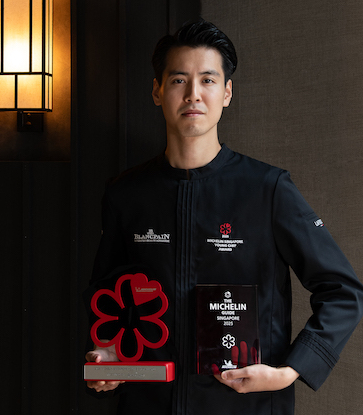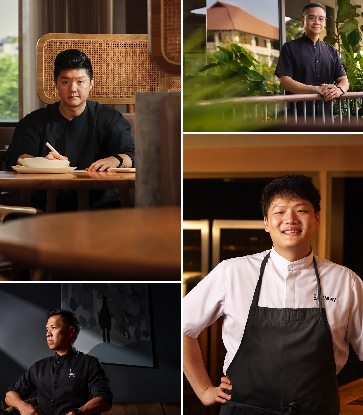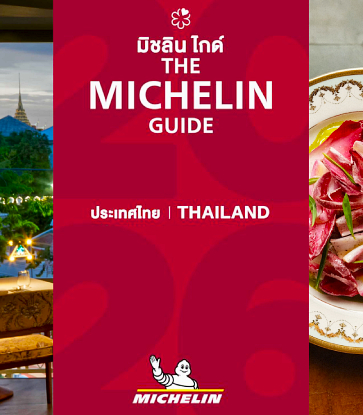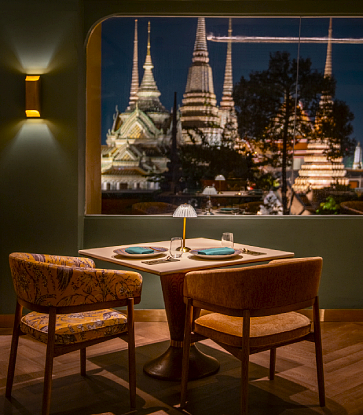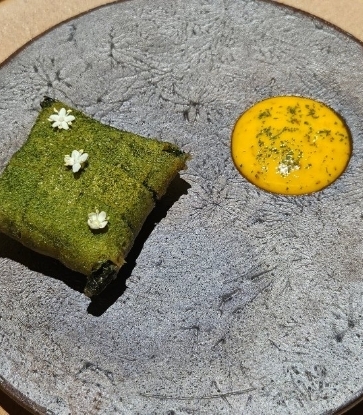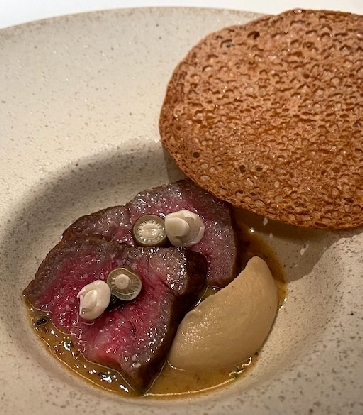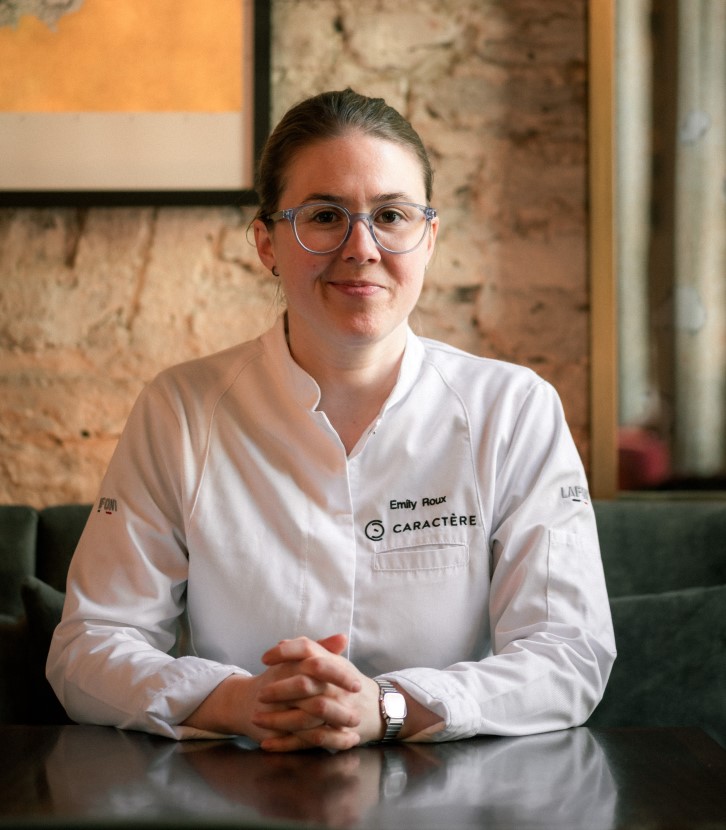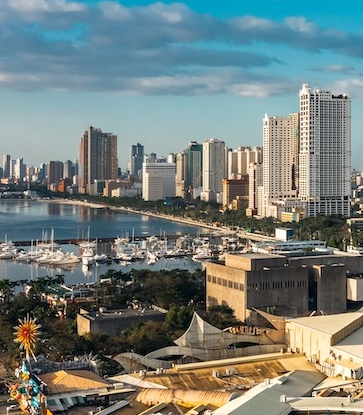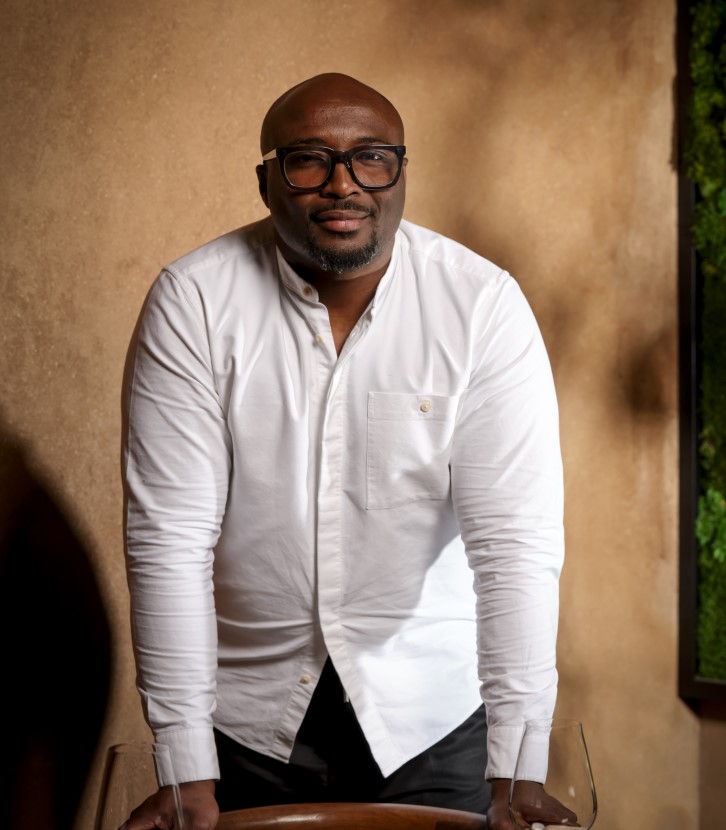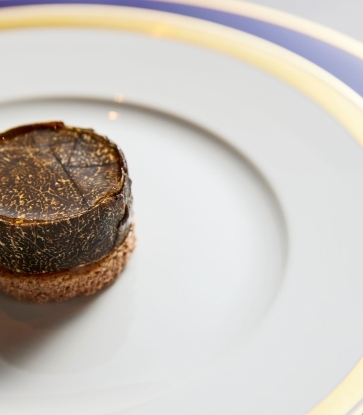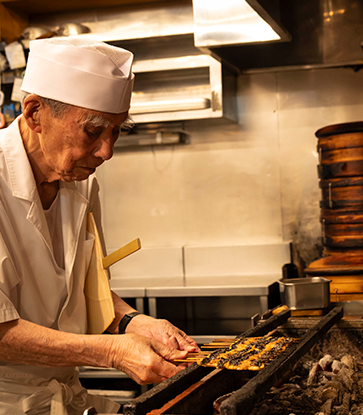What are your thoughts about life, work, the people, and the cultural differences in Japan?
Japan is the only place in the world where you can live surrounded by food and traditions nurtured by the four seasons, with ingredients from the sea and mountains, meat, fish, vegetables, and fruits. As a chef, I am very happy to find myself in such a blessed environment.
What do you think about Japanese ingredients?
I've lived in places like England and Hong Kong, where many ingredients are imported. So, cooking in a city like Tokyo that mainly uses domestic ingredients has changed the way I think about food and cooking. This is because, more than anywhere else in the world, domestic and international guests visiting Tokyo place great importance on the origin, as well as the quality, of ingredients.
What is your favourite Japanese ingredient?
It's gibier (game). I didn't know there are so many kinds of gibier in Japan. In addition, the quality and supply are stable.

What did you learn in big cities such as London, New York, Paris, and Hong Kong?
In Paris I learnt how to cook. In New York I learnt how to work professionally. In London I learnt how to work quickly and efficiently. In Hong Kong I learnt how to be a chef who’s not just in the kitchen, but also developing relationships with guests and building a foundation and a reputation.
(Photo: SÉZANNE)
What made you choose Tokyo as your next destination? What else do you want to achieve here?
I think Tokyo is one of the most competitive cities in the world when it comes to restaurants and chefs. In such a city, if I can make an impact as a chef while also influencing younger chefs, then I will feel I have achieved a lot here. If someone asks a chef: “Would you like to cook in Tokyo?” they should always answer: “Yes”.
Who do you admire and why?
Chef Kawada of Sazenka. His Chinese cuisine is astonishingly original in terms of elegance, sophistication, and sheer deliciousness. And in achieving this, he has never deviated from the framework of Chinese cuisine.
How did you overcome challenges in your career?
It is always difficult when you start out as a chef. It's a very lonely profession where you work long hours and don't make much money. When I was just starting out, I didn't have time to hang out with my friends or have much spare time, but I think that triggered me to work harder than anyone else and to really push myself. I think I've spent most of my life cooking at the expense of other things, so I'm going to make sure it’s worthwhile and prove that the time was not wasted.
What does the MICHELIN Guide mean to you?
The MICHELIN Guide has great meaning, particularly for young chefs. When it comes to high quality food, it can be said that it is a benchmark for knowing whether you are doing the right thing and heading towards the right direction. When I was younger, it was also a guide to tell me where to work and from whom I should learn.
What does being a chef mean to you?
For me, being a chef is about responsibility. I am responsible for food, for restaurants, and for teaching and training the team. When they leave SÉZANNE's kitchen, and I send them out in the wider world, I want to make sure they know more than when they first came here.

Do you have any advice or message for young people who want to become chefs one day?
Young people need to understand that they can only achieve their goals by working hard. Nothing is given, but if you work hard enough, that "dream" you had will come true.

Read what our MICHELIN Guide Inspectors have to say about SÉZANNE
Header Image: SÉZANNE




